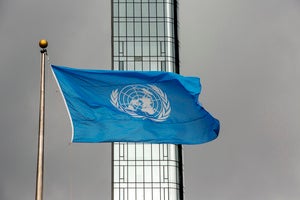But partisan divisions on strengthening the institution have reached a new 50-year high.
As the United Nations reaches its 80th anniversary this year, the spirit of cooperation and multilateralism that defines its work seems at risk. Unilateralism, power politics, and impunity appear to be driving many world developments. While the US government has often worked around rather than through the United Nations, under President Donald Trump the United States has gone even further, withdrawing from the UN Human Rights Council and the UN Educational, Scientific, and Cultural Organization (UNESCO). Despite these shifts in policy, the 2025 Chicago Council Survey, fielded July 18-30, finds the American public remains broadly supportive of the UN mandate and thinks the organization has a role to play. However, there are deep and growing partisan divides on how important strengthening the institution is to US foreign policy.
Key Findings
- Two-thirds of Americans (66%) say the United States should be more willing to make decisions within the United Nations, even if this means the United States will sometimes have to go along with a policy that is not its first choice.
- Majorities of Democrats (83%) and Independents (68%) support this compromise approach compared to just four in 10 Republicans (44%).
- Four in 10 Americans (39%) view strengthening the United Nations as a very important goal for the United States, similar to attitudes over the past 50 years.
- Democrats (62%) are far more likely than Independents (32%) or Republicans (29%) to say strengthening the United Nations is a very important goal for US foreign policy—the largest partisan divide on this question in the Council’s 50 years of polling.
Partisan Gap on Strengthening the United Nations at Widest Point Yet
How the United States should approach the United Nations has long been a topic of debate for US foreign policymakers. Over the past two decades, Republican and Democratic presidents have taken distinctly different approaches to the institution and its agencies. Yet the overall American public has remained consistent in its preferred approach to the United Nations: overall, four in 10 Americans (39%) say strengthening the United Nations is a very important goal for the United States. This level of prioritization has remained more or less stable over the past 50 years of the Council’s survey research, with the exception of a large spike in 2002 following the September 11 terrorist attacks and a subsequent drop in 2004 following the Iraq War debates. Americans have consistently relegated strengthening the United Nations as a public priority for US foreign policy. This year, it again comes well below longstanding public priorities such as protecting the jobs of American workers (73% very important) and preventing the spread of nuclear weapons (67% very important) [see Appendix].
However, American attitudes are also shifting in a critical way: the public is increasingly divided along partisan lines when it comes to the United Nations. While a majority of Democrats (62%) view strengthening the United Nations as “very important,” just a third of Independents (32%) and a quarter of Republicans (29%) agree. These divisions have steadily grown over the last several decades. At 33 percentage points, the gap between Democrats and Republicans on this issue is now at its widest point in Council polling history dating back to the first 1974 Chicago Council Survey.
In part, this polarization reflects different levels of favorability of the United Nations. As the 2025 Pew Global Attitudes Survey finds, 57 percent of Americans overall view the United Nations favorably, with Democrats and Democratic-leaning Independents (77%) far more likely to view it favorably than Republicans or Republican-leaning Independents (37%).
The 2025 Chicago Council Survey shows that the polarization also reflects divergent views on the efficacy of US participation in international organizations more broadly. Overall, three-quarters of Americans (76%) say participating in international organizations is an effective way of achieving US foreign policy goals (32% very effective, 44% somewhat effective). Matching their more-favorable views of the United Nations and working through it, notably more Democrats (86%) view participating in international organizations as effective than Independents (75%) or Republicans (65%). Partisans also prioritize differently. For Republicans, working through international organizations comes near the bottom of all approaches asked about, with only economic aid to other countries (52%) seen as less effective. For Democrats, working through international organizations comes near the top, behind only maintaining US alliances (91%) and providing humanitarian aid (89%). This fits with longstanding trends among both partisan groups. As the 2022 Chicago Council Survey found, Democrats believe that the United States should prioritize leading international cooperation to address world problems, while Republicans focus on ensuring the physical defense of the country.
Majority of Americans Favor Making Decisions Through the UN, Even at the Cost of Compromise
This same basic pattern—a stable level of overall support despite deep partisan division—is also true when it comes to questions of reaching compromises through the United Nations. Today, two-thirds of Americans (66%) say the United States should be more willing to make decisions within the United Nations, even if this means the United States will sometimes have to go along with a policy that is not its first choice—the same proportion as in 2004. Democrats (83%) and Independents (68%) are more likely to support this compromise approach than Republicans (44%), as has been the case over the past two decades of Council survey research.
Americans Say US Leaders Should Consider UN Resolutions—After Many Other Factors
When it comes to making US foreign policy decisions, most Americans (77%) say US leaders should take UN resolutions into account either a great deal (33%) or a fair amount (44%). However, when placed into a broader context with other considerations, UN resolutions fall below most other issues asked about, including the interests of the American people (75% a great deal), international law (48%), the interests of US allies and partners (41%), and the interests of US businesses (35%). The only factor Americans say should be considered less than UN resolutions are leaders’ own financial interests (24% a great deal, 25% a fair amount).
Majorities across political affiliations say US leaders should take UN resolutions into account either a great deal or a fair amount (88% Democrats, 77% Independents, 65% Republicans). But as with other issues related to the United Nations, there is a significant gap between Democrats, of whom a plurality say it should factor in a great deal to US policymaking (47%), and Republicans, who are much less likely to agree (20%); Independents (31%) lie in between these two poles.
MAGA and Non-MAGA Republicans Diverge on the United Nations
Republicans are generally less favorably inclined toward the United Nations, and that tendency is particularly strong among those Republicans who self-identify as supporters of the MAGA movement.1 A majority of MAGA Republicans (62%) say the United States should not be willing to work through the United Nations if it means compromising on US policy preferences; by contrast, a majority of other Republicans (63%) favor working through the United Nations even if it means compromising. MAGA Republicans are also less likely to say US leaders should take UN resolutions into account (61%, versus 74% of other Republicans). Moreover, only 19 percent of MAGA Republicans say leaders should take UN resolutions into account a great deal—the lowest of all the potential factors, below even leaders’ own financial interests (32% a great deal).
Conclusion
Despite the notable changes in the US approach to the United Nations under the second Trump administration, public support for the institution remains stable. Though few Americans follow UN issues closely, this suggests that much of the public is not on board with the administration’s efforts to distance the United States from the United Nations. Indeed, rather than reflecting public response to recent administration actions, the stable view of the United Nations amid growing polarization reflects longstanding differences in how Democrats (and many Independents) favor collective international action to address global problems, compared to Republicans’ longstanding preference to act unilaterally in pursuing US interests.
- 1
Sixty-seven percent of self-described Republicans say they consider themselves supporters of the Make America Great Again or MAGA movement.
This analysis is primarily based on data from the 2025 Chicago Council Survey of the American public on foreign policy, a project of the Lester Crown Center on US Foreign Policy.
The 2025 Chicago Council Survey was conducted July 18–30, 2025, by Ipsos using its large-scale, nationwide, online research panel (KnowledgePanel) in English and Spanish among a weighted national sample of 2,148 adults 18 or older living in all 50 US states and the District of Columbia. The margin of sampling error for the full sample is ±2.2 percentage points, including a design effect of 1.07.
Partisan identification is based on how respondents answered a standard partisan self-identification question: “Generally speaking, do you think of yourself as a Republican, a Democrat, an Independent, or what?”
The 2025 Chicago Council Survey is made possible by the generous support of the Crown family and the Korea Foundation.
Additional results reported from August 2025 are from a Chicago Council on Global Affairs-Ipsos survey conducted August 22–24, 2025, by Ipsos using its large-scale, nationwide, online research panel (KnowledgePanel) among a weighted national sample of 1,021 adults 18 or older living in all 50 US states and the District of Columbia. The margin of sampling error for the full sample is ±3.1 percentage points, including a design effect of 1.05.
The data for the total sample were weighted to adjust for gender by age, race/ethnicity, education, Census region, metropolitan status, and household income using demographic benchmarks from the 2024 March Supplement of the Current Population Survey (CPS). The specific categories used were:
- Gender (Male, Female) by Age (18–29, 30–44, 45-59 and 60+)
- Race/Hispanic Ethnicity (White Non-Hispanic, Black Non-Hispanic, Other Non-Hispanic, Hispanic, 2+ Races Non-Hispanic)
- Education (Less than High School, High School, Some College, Bachelor or Higher)
- Census Region (Northeast, Midwest, South, West)
- Metropolitan Status (Metro, Non-Metro)
- Household Income (Under $25,000, $25,000-$49,999, $50,000-$74,999, $75,000-$99,999, $100,000-$149,999, $150,000+)


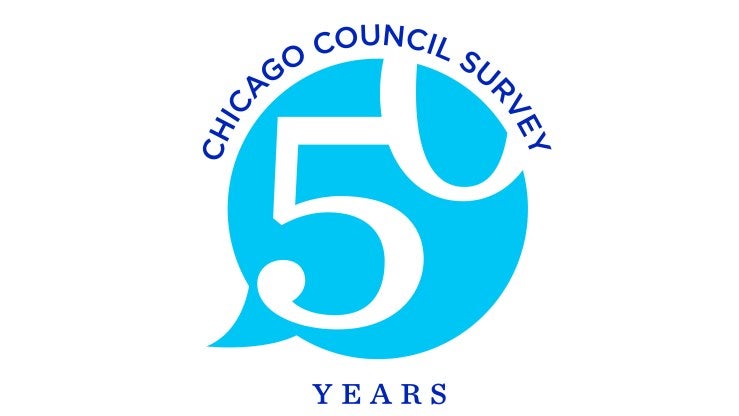

Related Content
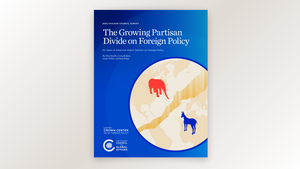 US Foreign Policy
US Foreign Policy
Results and analysis of the Council's 2025 annual survey of American views on foreign policy.
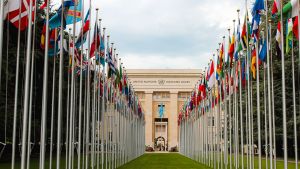 Global Politics
Global Politics
Catherine Bertini and Thomas G. Weiss join Deep Dish to discuss the future of the United Nations and why the United States should lead its renewal.
 Public Opinion
Public Opinion
But recent polling finds key drops among the publics of France, the United Kingdom, and the United States.
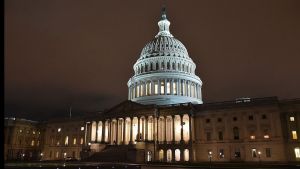 Global Politics
Global Politics
This paper provides guidance for new leaders through various stages of the early days of UN leadership.
